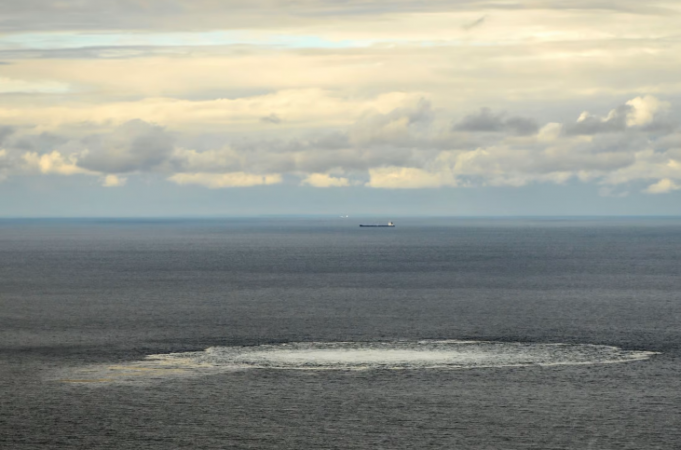
UNO: The Nord Stream natural gas pipeline system under the Baltic Sea is likely to rupture, resulting in the largest single recorded release of climate-damaging methane, the United Nations Environment Program reported on Friday.
Researchers at UNEP's International Methane Emissions Observatory, or IMEO, said this week that they have discovered a huge pile of highly concentrated methane, a greenhouse gas that is far more potent but has a shorter lifetime than carbon dioxide.
Also Read: France requests international organizations look into the 'Sabotage' of Nord Stream
"It's really bad, probably the biggest emissions event ever. It's not helpful when we should be reducing emissions," said Manfredi Caltagirone, IMEO's acting head for UNEP.
The amount of methane leaking from the Gazprom-led pipeline system has yet to be determined by researchers using imagery, but they believe the rate of emissions from offshore oil and gas fields in Mexican waters in December will increase. More than a significant leak. The Gulf of Mexico, which releases about 100 metric tons (221,000 pounds) of methane per hour, according to Caltagirone.
Also Read: Nord Stream 2 pipeline in Russia is leaking
A study from the Polytechnic University of Valencia, published in the journal Environmental Science and Technology Letters, estimated that the Gulf of Mexico, which was also visible from space, eventually released about 40,000 metric tons of methane over 17 days.
According to the US Environmental Protection Agency's greenhouse gas equivalence calculator, this is the same as burning 1.1 billion pounds of coal.
Scientists' ability to detect and analyze greenhouse gas emissions has improved rapidly in recent years, and some governments are hoping it will help businesses identify and prevent methane emissions.
Also Read:Russia-Ukraine conflict is forcing Europe to reverse its climate goals this winter
There are many theories about who or what caused damage after a sudden significant leak in the Nord Stream gas pipelines transporting gas from Russia to Europe, but few conclusive answers. Both Russia and the European Union have emphasized that sabotage is to be blamed for sabotage.
In retaliation for Moscow's invasion of Ukraine, Europe and the United States have imposed a number of sanctions, raising concerns that Moscow may attempt to cut off Europe's access to essential energy supplies as winter approaches.
Whatever the reason, Caltagirone claimed that the pipeline damage presented issues that went beyond energy security. This, he said, "is the most wasteful way to produce emissions."